Israel restrains anti-Netanyahu protests in new coronavirus lockdown law
Israel’s parliament Knesset has passed a controversial bill to curtail public protests against Prime Minister Benjamin Netanyahu over his corruption charges and handling of the coronavirus crisis, which has led to soaring unemployment in the occupied territories.
The Netanyahu-backed legislation, which was approved early Wednesday after an all-night debate, will give the administration the power to ban people from holding demonstrations more than one kilometer (0.6 miles) from their homes, and limit outdoor gatherings to a maximum of 20 people.
The bill was ratified on second and third readings by a vote of 46-38.
Under the final version of the law, the Israeli cabinet can curtail protests, prayers and religious ceremonies for a week under the so-called “special coronavirus emergency,” with the possibility of extending it another two weeks should the “emergency” remain in place.
The measure also removes a clause that had exempted protests and prayers from rules limiting gatherings.
Critics of the new law vociferously said it was intended to block protests near Netanyahu’s official residence in Jerusalem al-Quds and would only serve his political interests using the virus as a cover.
They say that under the rules, protests outside the prime minister’s residence would be kept to 2,000 total, with the Paris Square protest zone able to accommodate 100 capsules of 20 people. Only those who live within a kilometer would be able to attend.
The number is far below the 10,000 to 20,000 people who have shown up weekly outside the building to demonstrate against Netanyahu.
“I came to see if I can still speak in the plenum, because that’s the next step,” opposition leader Yair Lapid said in the Knesset on Tuesday night.
He added, “They’ll say that because of the coronavirus I can’t stand here and speak in the name of the opposition.”
Eli Avidar, a legislator from the secular Yisrael Beiteinu political party, called the law an “attack” on Israelis, arguing that the occupied territories have “become a dictatorship.”
Earlier on Tuesday, Israeli justice minister Avi Nissenkorn of the Blue and White party said that the “dangerous attempt” by Netanyahu’s Likud party “to ban the right to protest throughout the crisis has failed.”
“Restrictions on demonstrations will apply only during a full closure. Once the restrictions on the economy are eased, restrictions on demonstrations and prayers will be lifted immediately,” Nissenkorn explained.
For weeks, thousands of demonstrators have gathered to call for Netanyahu’s resignation.
Ahead of the parliamentary debate on Tuesday, protesters gathered in cars near the Knesset to protest the bill and engaged in clashes with police forces.
The Black Flags movement, one of several groups behind the protest, said in a statement that “the Netanyahu police continues with its relentless violence against anyone who doesn’t support the Netanyahu regime. Blue and White needs to watch these images and understand the enormity of this moment. Netanyahu is trying to violently crush democracy. This is the time to stop him.”
Opinion polls show only about a quarter of the public has confidence in the way he has dealt with the coronavirus pandemic.
Israel’s Ministry of Health reported 2,200 new COVID-19 cases on Tuesday, bringing the tally to 235,465.
The death toll rose by 16 to 1,523, while the number of patients in serious condition increased from 772 to 778, out of 1,571 patients currently hospitalized.
'Next to impossible' to rescue patients from Gaza's Kamal Adwan Hospital: Director
VIDEO | Vietnam current prosperity
Report blames gasoil exports for shortage at Iranian power plants
VIDEO | Hind Rajab Foundation names Israeli war criminals vacationing after Gaza genocide
VIDEO | Australians rally for Gaza ahead of Christmas festivities
VIDEO | Attacks on Sana'a
Iran reports further drop in annual inflation rate in December
Israel indicts two settlers over suspected spying for Hezbollah


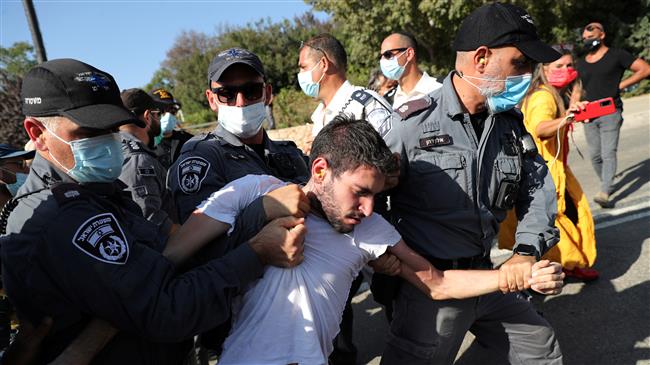

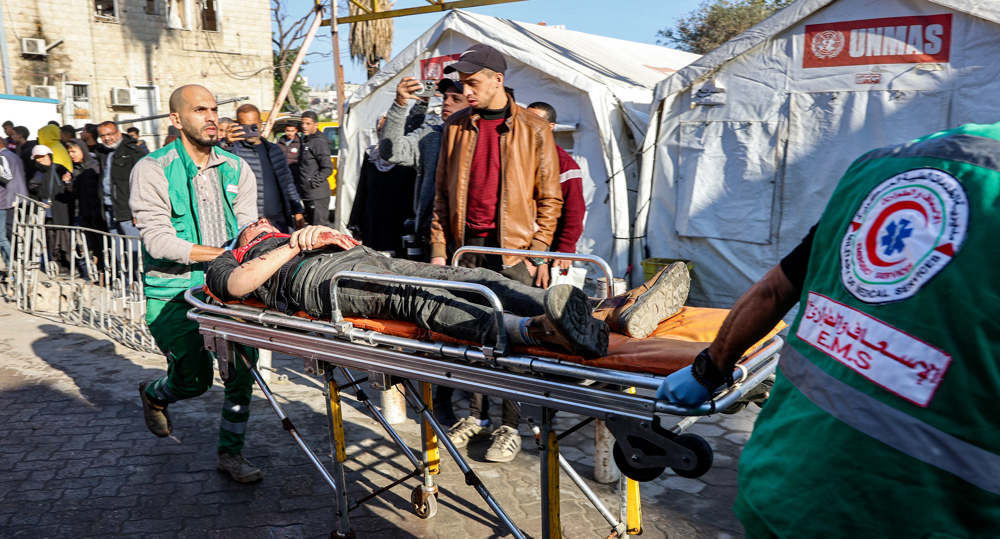

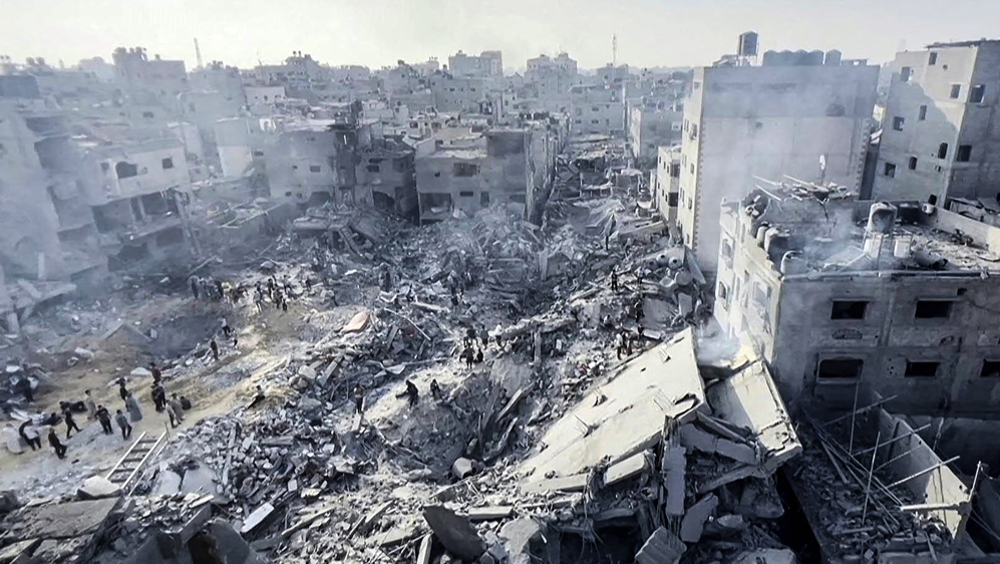





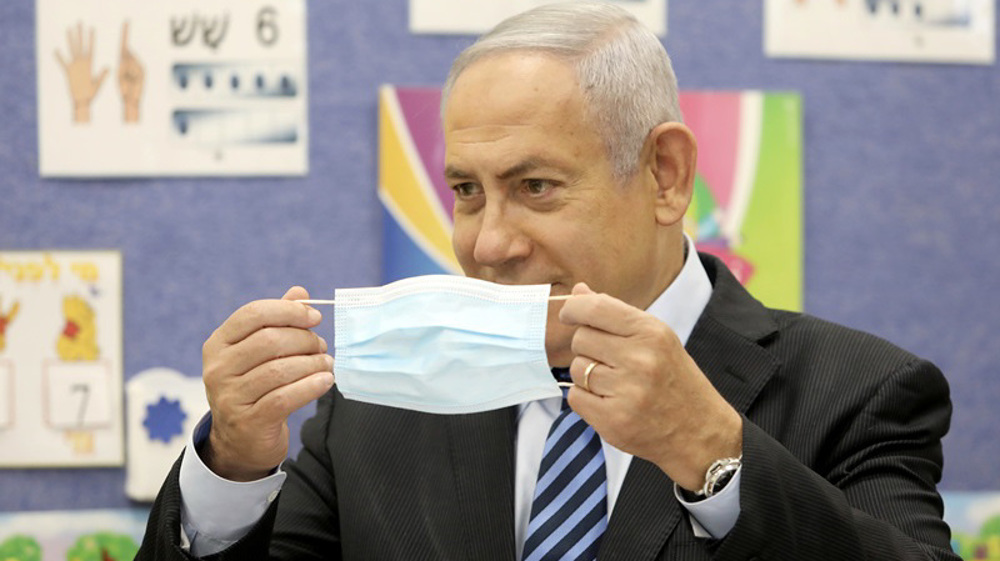



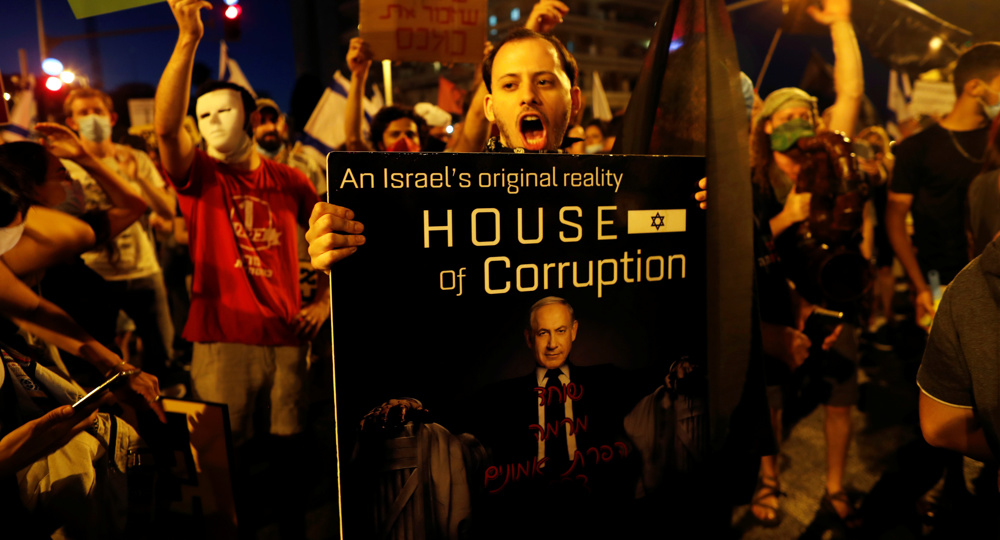
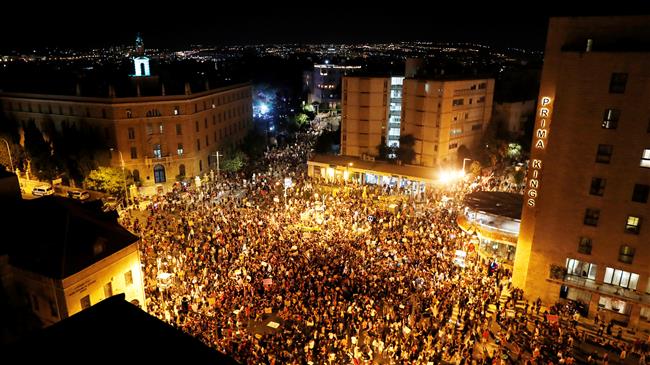
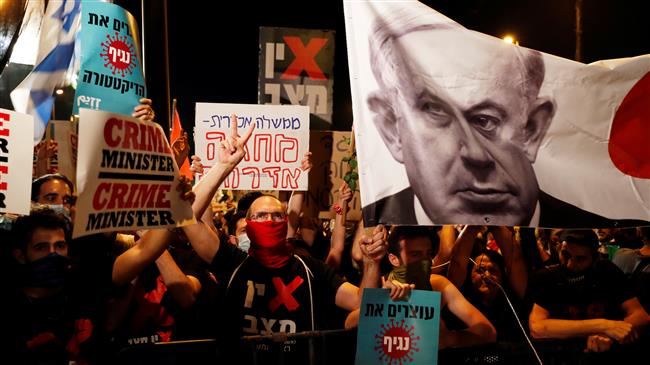

 This makes it easy to access the Press TV website
This makes it easy to access the Press TV website